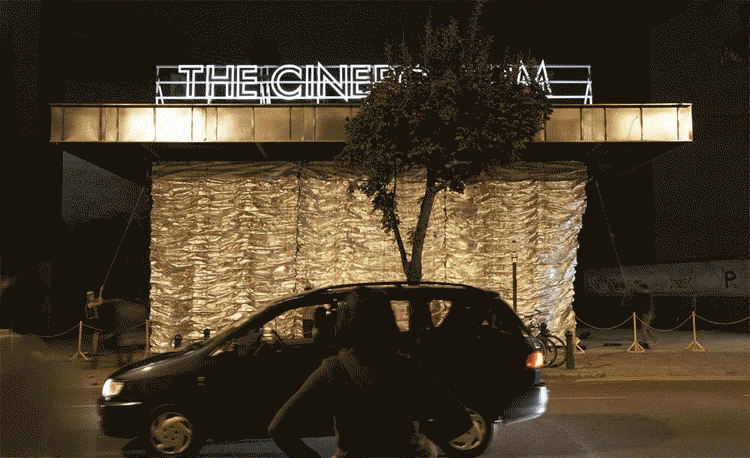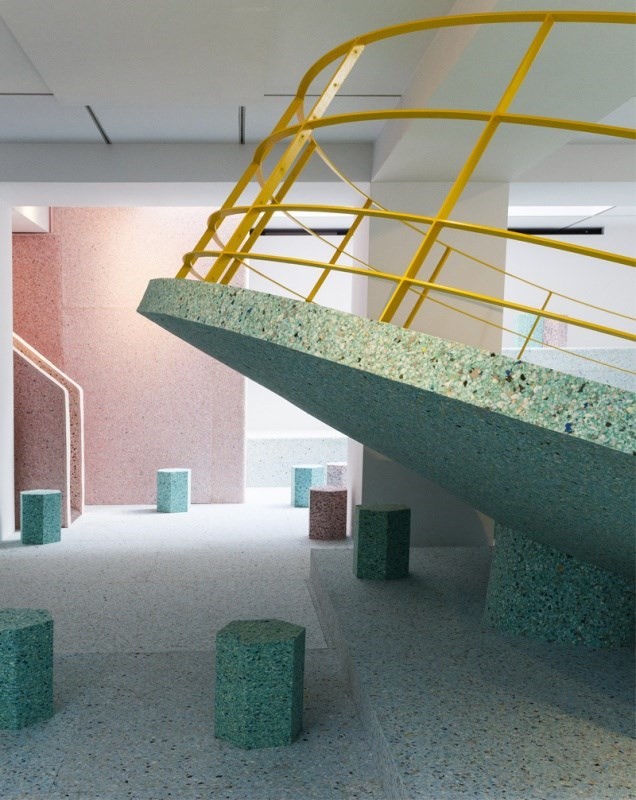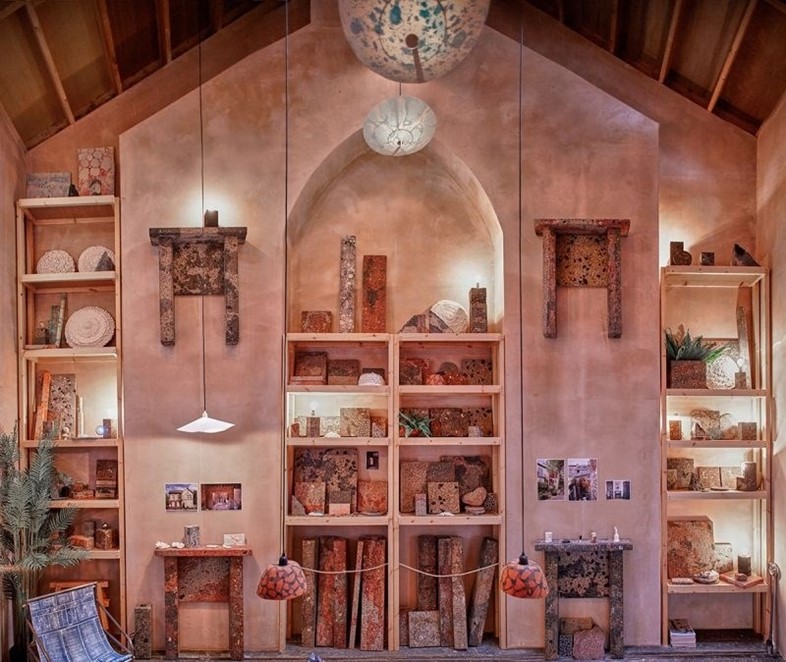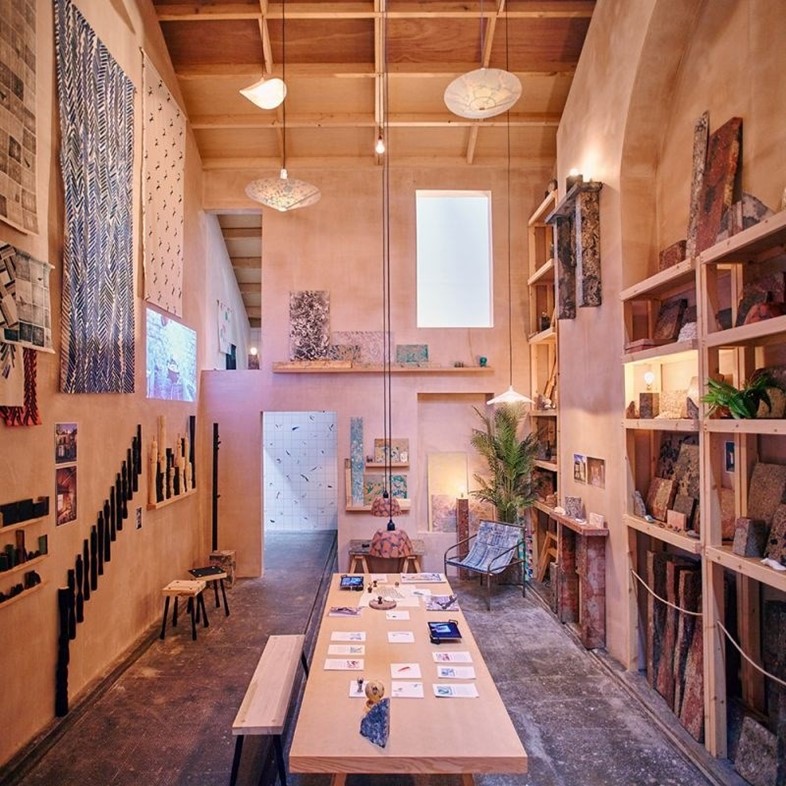After Assemble’s Turner Prize win for the redevelopment of housing that had been written off and ‘tinned up’ by Liverpool council, Rebecca May Johnson reflects on what makes the project stand out from the crowd
Since the economic crash of 2008, the makeshift aesthetic of the ‘pop-up’ – that of constructions built using materials that look ‘found’, ‘homemade’, or ‘repurposed’ – has become a dominant trope in British architecture. Architecture and design collective Assemble were among the first. In 2010, their ‘Cineroleum’, a temporary cinema built with the help of volunteers using cheap and donated materials in an abandoned petrol station in Clerkenwell, drew widespread acclaim. It was beautiful, great fun, and though rough round the edges – seats were made from scaffolding planks – it felt glamorous and hopeful.
From that moment on, an abundance of street markets, shops, cinemas, cafés, galleries and clubs have appeared in shipping containers, on rooftops, in multi-storey carparks and in sites awaiting redevelopment. In the wake of the Occupy movement’s situationist takeover of public space and the growing distaste for visual signifiers of ‘corporate’ culture among consumers, the makeshift delivered the impression of a cosy, ‘handmade’ reclamation of public space from the now condemned, tax-avoiding big business and government.

However, global companies of all kinds and property speculators were quick to catch on. The marketing friendly nature of pop-ups (cheap, high impact, quick to erect) has been used to re-position brands as relevant, politically engaged and ‘people friendly’, or to act as a smokescreen for controversial housing developments. If you’re wondering which bit of unloved public space is going to be ‘redeveloped’ next, look for the latest streetfood market run by bearded graduates, and you can be sure that in a few years, ‘luxury flats’ will have taken its place. Many makeshift spaces serve a distinctly un-radical consumer seeking a moment of authentic ‘experience’ through the purchase of a handmade product, while just around the corner, the real victims of the economic crisis are evicted and their homes demolished (see areas such as Brixton, Bermondsey, Peckham, Tower Hamlets, and Elephant and Castle in London).

Assemble are different. As demand for their services sky rocketed – including lucrative offers from fashion brands – they focused on the task of serving the public first, and the client second. “Our default client is the public and the public takes priority over the client,” commented Fran Edgerley, one of the members of Assemble who led the Turner Prize winning Granby Workshop project. “That’s quite unusual I think, the priority for most architects is the people that are paying their wages and they base decisions on appeasing them,” she continued.
Their democratic and labour-intensive methodology, where outcomes are shaped by the identification of local needs observed through deep engagement with residents, is what makes them so good. After the riots of 2011, an area of Croydon that had experienced significant damage commissioned Assemble to improve its public space. They worked with local activists over nine months, starting with a three-month collaborative research process with local residents, businesses and community groups. They then built 1:1 models of all the resulting proposals and tested them by hosting a week-long festival of events on site.

In Granby, Liverpool, a large number of perfectly good Victorian terraces in a working class area were demolished, or had the contents ripped out and their windows ‘tinned up’ with sheets of rusting metal. Residents spoke of feeling like their lives were viewed as being of ‘no value’ to the council, and they fought the dereliction and institutional abandonment over two decades, painting, planting, and campaigning in order to reclaim their streets. After the council ‘accidentally’ knocked down a house that was in good condition, one resident painted ‘don’t knock this down’ on all of the walls around her house in protest. In 2011, the Community Land Trust brought in Assemble to rebuild ten empty houses. Residents commented that working with Assemble was the first time it felt like they had been listened to, and that there was ‘a meeting of minds’.
After residents returned to renovated houses that had been empty for 30 years, Assemble worked with them to set up Granby Workshop social enterprise (a model of which is in the Turner Prize 2015 exhibition at Tramway in Glasgow) to support the hands-on activity that had saved the area from total dereliction. Elements developed for the renovation of the houses – beautiful mantelpieces cast using rubble construction waste from the area, woodblock printed fabric, door handles decorated using smoke in sawdust-filled barbeques and tiles decorated using colourful cut-out decals – are now for sale, made by residents. Every object is different, revealing the role of the maker, and the value of their lives.

The Granby Workshop installation at Tramway practically radiated with energy and life in comparison to the other more conventional art pieces. Visiting it was an overwhelming and emotional experience. When asked whether projects such as this removed the responsibility from the government in providing social housing and looking after the working class population, Edgerley said that, “It’s a shame that it isn’t being done by the state, but it is important to take action and show what can be done to give councils something to refer to.”
However, there is an degree to which Assemble plays the role of Florence Nightingale, patching up the open wounds of a welfare state that is ultimately dying, abandoned by government. There is also a question mark over whether Assemble’s working practices could work on a grander scale. Could their caring, labour-intensive methodology achieve something like utopian, post-war social housing of The Barbican Centre? Certainly not without state backing.
At a time when, in Britain, it can feel like every week another library is shut or estate demolished, we desperately need positive models for change – and in that, Assemble have set the bar very high.
